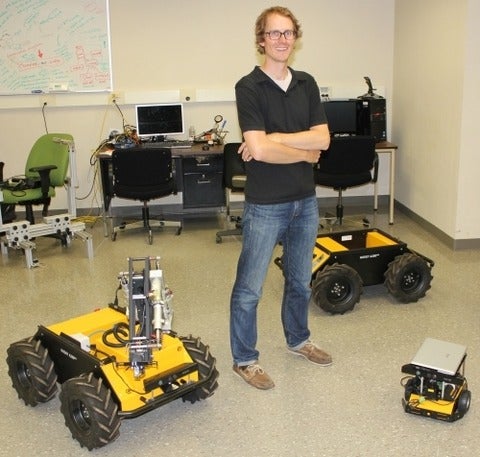University of Waterloo part of two winning Innovation Supercluster Initiatives
The University of Waterloo will be a key partner with leading Canadian companies and sectors chosen to help grow our country’s global competitiveness through significant investments in the areas of artificial intelligence (AI) and advanced manufacturing.
As part of the Government of Canada’s $950 million Innovation Supercluster Initiative, Waterloo will take a leading research role in two of the five winning bids announced today. The effort will see researchers and innovators from Waterloo become key contributors in industry-led consortia.
